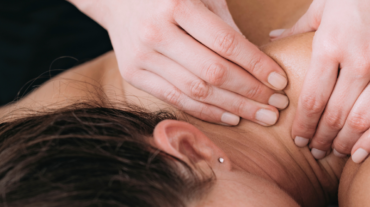Hypothyroidism is a condition in which your thyroid gland does not make enough thyroid hormones: triiodothyronine (T3) and thyroxine (T4). Because these hormones control your body's metabolism, an under-active thyroid can make you feel sluggish, tired, achy, and can even cause you to gain weight. While it used to be that hypothyroidism was caused by iodine deficiency, this is now rarely the case as iodine is added to our table salt (so if iodine deficiency is cited as the cause today, it is usually because you are on a very low-salt diet due to high blood pressure). Other causes of hypothyroidism include congenital defects, Hashimoto's disease (an autoimmune disorder in which antibodies attack your thyroid gland, resulting in a lump on the gland called a goiter), and diseases of the hypothalamus or pituitary gland, which regulate the thyroid gland. Also, radioactive iodine treatment of Grave's disease (hyperthyroidism), radiation for thyroid cancer, or surgical removal of part or all of the thyroid gland for other reasons can all result in hypothyroidism.
Risk factors for hypothyroidism include being over 40 years old, a family history of the disorder, being female, hormone imbalances, taking certain medications such as lithium, a diet lacking in iodine or selenium, stress, and pregnancy.
Signs and symptoms of hypothyroidism include:
- sensitivity to cold
- depression, irritability or anxiety
- constipation
- anemia and bruising easily
- fatigue
- menstrual irregularities
- dry, brittle nails
- dry eyes
- dry, itchy skin and hair, and hair loss
- muscle soreness or joint pain
- headaches
- high cholesterol
- unintentional weight gain
- memory loss
- low libido
- slow heart rate
- insomnia
A basic blood test will not necessarily reveal if you have hypothyroidism, especially if you only have borderline hypothyroidism (also called compensated hypothyroidism),
so be sure that your doctor requests a 24-hour urine sample to measure your T3 levels.
Hypothyroidism often requires lifelong treatment with medication that can take some time to determine in regards to proper dosage, and must not be stopped once you feel better; you will likely need the medication for the rest of your life. It is also important to know the interactions between your thyroid medication and supplements such as calcium and iron, so consult your doctor and/or pharmacist about the proper length of time between taking these products.
While natural medicine cannot compensate for the removal of your thyroid gland, it can help prevent hypothyroidism and even manage your symptoms once you are diagnosed. Diet modification is essential as your body needs proper intake of food to maintain hormonal balance, and acupuncture and TCM can also help to balance your hormone levels and reduce some symptoms such as fatigue and lethargy. Yoga and massage therapy can help reduce some of your pain symptoms, and reduce your stress levels.
Contact us for a FREE consultation on how natural therapy can help you prevent and manage your hypothyroidism, and maintain a healthy lifestyle.
These links may also be helpful:







